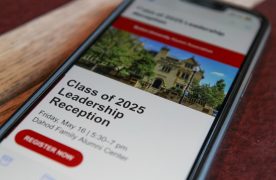The Baker administration recently acknowledged the extent of Boston’s traffic problem, describing it as having reached a “tipping point,” according to The Boston Globe. Among the broad swath of solutions that have been proposed, improving the MBTA has sparked an intense debate and there are fears that more construction will only exacerbate the congestion issue.
These fears are not restricted to the general public. Secretary of Transportation Stephanie Pollack told WGBH, “for us to fix things faster, it does mean we’ll be inconveniencing folks.” However, this inconvenience will be minor in comparison to the consequences of allowing the T to deteriorate.
But this inconvenience is somewhat of an invented grievance. Whether or not public transportation is improved, people will always find something to take issue with — for example, the conductors’ behavior or the apparently unequal time spent at each stop. For the MBTA to fix things faster, it has to overcome the temporary discomfort of annoying its customers.
Fixation on rider satisfaction is just another case of putting the cart before the horse. It’s also not the case that public transportation usage will dramatically drop off when the project begins. There are strategic ways one can go about this and doing the majority of the work on the weekends is a good start.
Serviceable — even decent — alternatives to the T also exist. When the Green Line is shut down because of some inevitable incident, there are buses that take commuters to the same destinations. If a commuter must travel somewhere buses do not reach, the cost of an Uber or Lyft ride is ultimately understood as a necessary tradeoff.
Given the current discouragement of ride-sharing services from the city, MBTA opponents may connect a short-term spike in usage to this infrastructure project. However, this argument fails to consider why people ultimately turn to Uber and Lyft, despite being more expensive than public transit. Time is valuable and public transit in its current state is anything but time-efficient.
Unless public transportation is radically transformed, the utility of ride-sharing services will persist indefinitely. To mitigate this unintended consequence, the government ought to internalize that this project will be worth it in the long run.
If problems are permitted to build up, this undertaking will be significantly more costly in the future. Not only will there be lost revenue from train lines becoming defunct from frequent accidents, but the magnitude of the problems will also be larger. Public frustration now could generate strong public resistance for future endeavors if the government allows itself to look complacent.
Public transportation is incredibly important. With more than one million daily riders, it can be assumed that a significant portion of those users rely on the T to get to and from their jobs. This effect has been amplified by the rising price of housing in Boston, which has effectively forced people to move outside of the city. However, they remain tied to Boston by virtue of their jobs, increasing their dependency on public transit.
Public transportation has been transformed from a cheaper alternative to a necessity. Improvement of the MBTA will inevitably be a bumpy transition, but the benefits are considerable. It will, in fact, lessen congestion and benefit Boston’s longer-term goal of decreasing carbon dioxide emissions.
In the short term of this project, increased congestion will be unavoidable. However, if the MBTA prioritizes accuracy and efficiency, the government can genuinely incentivize people to shift from cars to public transit and successfully target congestion.













